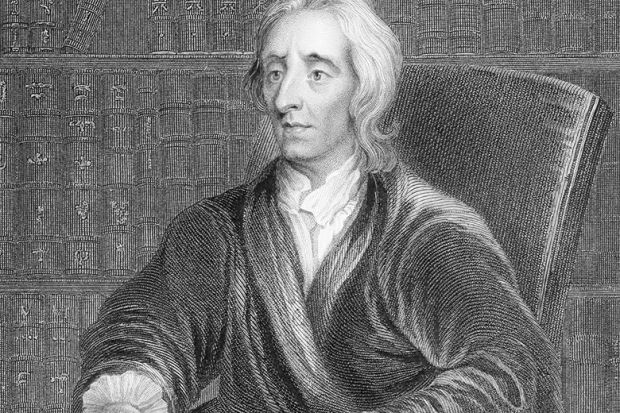In an era of increasingly illiberal democracies, it’s good to be reminded why many of us believe we possess certain inalienable rights upon which even elected governments may not trespass. Eric Mack, professor of philosophy at Tulane University, has sought to provide a “rigorous and clear exposition of the philosophical principles of libertarianism” that underpin those rights, most famously articulated in the United States’ Declaration of Independence of 4 July 1776.
Mack starts with synopses of the work of four early greats, John Locke, David Hume, John Stuart Mill and Herbert Spencer.
So we learn that for Locke, “’Tis a man’s proper business to seek happiness and avoid misery”, which meant that he had to be free from coercion. For Hume, “man alone” has few natural weapons in the biological struggle for survival – he has no claws, no fangs, no beak – so “’Tis by society alone he is able to supply his defect”, which behooves men and women to respect each other’s freedoms. For Mill, the utilitarian belief in the Greatest Happiness Principle means that the “peculiar evil of silencing the expression of an opinion” is that “if the opinion is right, [dissenters] are deprived of the opportunity of exchanging error for truth. If wrong, they lose…the clearer perception and livelier impression of truth produced by its collision with error.” (No platformers, please note.) And for Spencer, the Greatest Happiness is achieved when “Every man has the freedom to do all that he wills, provided he infringes not the equal freedom of any other man.”
Having introduced us to the natural rights, cooperation-to-mutual-advantage and indirect consequentialist approaches to libertarianism (and having nodded to Jeremy Bentham’s attack on natural rights as “nonsense on sticks”), Mack represents modern libertarians as providing a series of footnotes to the four early greats.
So we learn, for example, that when Robert Nozick concludes that “our separate existences” suggest that “there is no justified sacrifice of some of us for others”, he’s echoing Locke’s “we are not made for one another’s uses”. But modern libertarians face challenges that their predecessors were spared, socialism being one. So we learn from Friedrich Hayek that central planning doesn’t work because central planners lack sufficient information by which to allocate resources efficiently; we learn from Ludwig von Mises that prices provide markets with much of that information; we further learn from Nozick that taxation is a form of slavery; and we yet further learn from Hayek that “the concept of social justice is strictly empty and meaningless”.
Yet Mack is no mere chronicler, and he debates not only these thinkers but also their critics. There’s an amusing passage, for example, where he catches John Rawls trying to “have it both ways”.
This book is not an easily accessible overview of libertarianism, which is more readily found in the writings of its champions, including David Boaz and Tom Palmer at the Cato Institute. Nor is it a comprehensive analysis of the history of libertarian thought because, at 148 pages of text (with an additional chapter available online), it’s too short. It does, however, provide the serious student with a superb introduction to the philosophy of libertarianism, and it would be hard to think of a better one.
Terence Kealey is a research fellow at the Cato Institute in Washington DC.
Libertarianism
By Eric Mack
Polity
176pp, £45.00 and £14.99
ISBN 9781509519293 and 9309
Published 17 August 2018
POSTSCRIPT:
Print headline: What makes us free to be
Register to continue
Why register?
- Registration is free and only takes a moment
- Once registered, you can read 3 articles a month
- Sign up for our newsletter
Subscribe
Or subscribe for unlimited access to:
- Unlimited access to news, views, insights & reviews
- Digital editions
- Digital access to THE’s university and college rankings analysis
Already registered or a current subscriber?






